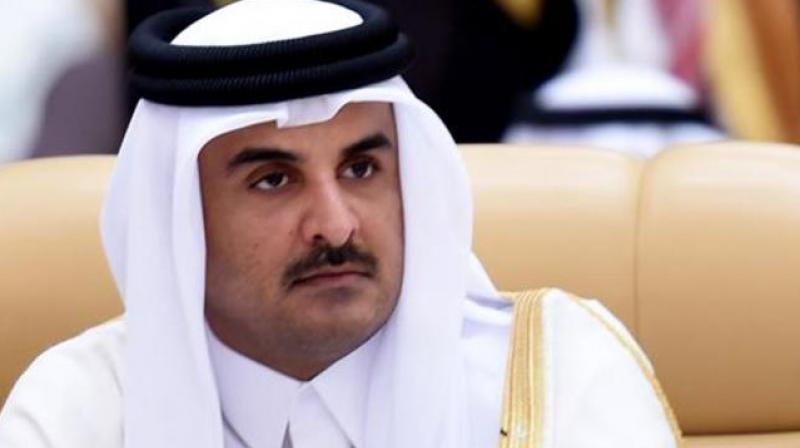Saudi accuses Qatar of distorting facts, suspends dialogue after outreach
Qatar's emir, Sheikh Tamim bin Hamad Al-Thani , spoke to Saudi Crown Prince Mohammed bin Salman to express interest in talks.

Riaydh: Saudi Arabia on Saturday suspended any dialogue with Qatar, accusing it of distorting facts soon after a phone call between the rulers of both countries offered hope of a breakthrough in the three-month-old Gulf crisis.
Qatar's emir, Sheikh Tamim bin Hamad Al-Thani , spoke to Saudi Crown Prince Mohammed bin Salman to express interest in talks, state media from both sides said, in the first public engagement between the leaders after the US president offered to mediate in the crisis.
Saudi Arabia led the United Arab Emirates, Egypt and Bahrain in cutting ties with Qatar in June, accusing it of bankrolling Islamist extremist groups and of being too close to regional rival Iran. Doha denies the accusations.
The crown prince "welcomed this desire," the Saudi Press Agency (SPA) initially reported, adding "details will be announced after Saudi Arabia reaches an agreement with UAE and Bahrain and Egypt".
But the prospect of a thaw quickly died down after SPA subsequently accused Qatar's state media of wrongly implying that Saudi Arabia had initiated the outreach.
"The contact was at the request of Qatar and its request for dialogue," SPA said, citing a Saudi foreign ministry official.
"Qatar is not serious in dialogue and continues its previous policies. The Kingdom of Saudi Arabia declares that any dialogue with Qatar shall be suspended until a clear statement explaining its position is made in public."
The development came after US President Donald Trump on Friday spoke separately with the leaders of Saudi Arabia, Qatar and the UAE.
"The President underscored that unity among the United States' Arab partners is essential to promoting regional stability and countering the threat of Iran," the White House said.
"The President also emphasised that all countries must follow through on commitments... to defeat terrorism, cut off funding for terrorist groups, and combat extremist ideology."
When he offered to mediate, Trump said he believed the dispute could be solved "fairly easily".
- 'Climbdown from brinkmanship' -
Despite the deadlock, observers said the telephone call between the Qatari and Saudi rulers itself was a sign that tensions were dissipating.
"The fact that the telephone call took place and the offer of dialogue was made is significant in itself," said Kristian Ulrichsen, a fellow at the Baker Institute for Public Policy at Rice University.
"(It) signals a climb down from the brinkmanship that has characterised so much of the Gulf standoff since June," Ulrichsen told AFP.
But diplomatic efforts led by Kuwait, a key mediator in the crisis backed by Western powers, have so far failed to achieve a breakthrough.
In Washington on Thursday, Kuwaiti Emir Sheikh Sabah al-Ahmad Al-Sabah offered Trump an upbeat assessment of his efforts so far.
But in a statement early Friday, the Saudi-led bloc showed no signs of backing down as it questioned the Kuwaiti emir's statement that Qatar would be willing to accept their 13 demands.
The demands include shutting Doha-based broadcaster Al-Jazeera, closing a Turkish military base in the emirate and downgrading Qatari diplomatic ties with Iran.
The bloc also voiced "regret" about the Kuwaiti ruler's statement "on the success of mediation in stopping military intervention".
Instead, the four Arab states stressed that "the military option has not been and will not be considered" under any circumstances.
Riyadh and Doha are both key allies of the United States, which has sent mixed signals on its policy towards the nations.
Trump, who chose Saudi Arabia for his first overseas visit as president in May, two weeks before the crisis erupted, immediately expressed staunch support for Saudi Arabia.
Some other US officials including Secretary of State Rex Tillerson adopted a more measured tone.
Qatar hosts a huge US air base, home to the headquarters of Centcom -- the regional command which leads operations against the Islamic State jihadist group.
Sheikh Tamim is set to meet German Chancellor Angela Merkel for talks on September 15, in what will be his first trip to a western capital since the crisis began.

